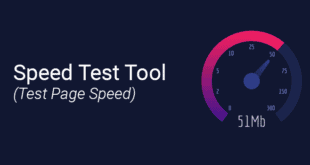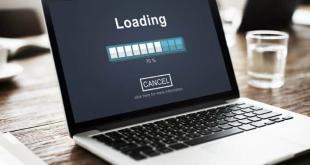Fifteen years ago during the prehistoric days of dial-up people would wait 2, 3, 5, or even 10 minutes for a single web page to load! Can you imagine that? Nowadays people won’t even wait a whole minute for a page to load. Surveys show that most people click away from a page or attempt to reload it if it takes longer than 45 seconds to load, and if it takes longer than that the second time most people will leave your site and look elsewhere for the information they need. Unfortunately, slow page loading is a problem that many webmasters have to face, and sometimes it can be frustrating trying to find a solution. The following are three ways you can speed up the loading times of your pages to keep your visitors happy:
Compress Your Images
Sometimes the media content on a page can drastically slow down the loading process, particularly if it is a high definition image. Try using compression software to compress the image before uploading it to your site, host it on a third-party image hosting site that provides faster loading, or make it smaller within your CMS. There are plenty of free mage hosting sites out there that will let you upload photos and then embed them on pages on your site, so you don’t have to use your own server resources to host them. WordPress makes it easy to shrink images when you’re uploading them to each post, as well as simplifying the process of positioning each image within the page. Alternatively, you can use an offline application or an online service to shrink your images before uploading them to your site directory.
Use Less Plugins
If you are using WordPress and you have a lot of plugins installed this could be the cause of your slow page loading times. Having more than 5-10 plugins installed and running at one time can drastically slow down your site because every time a page loads or a user commits an action the plugins have to send and receive information to and from the web server. Many webmasters have more plugins than they really need, and most of the time you can use one plugin to perform tasks that several plugins are doing. Really, all you need is a social sharing plugin like AddtoAny, an all-inclusive SEO plugin like Headspace2, and maybe 4 or 5 others to suit your preferences or site type; anything other than that is probably overkill unless you have the server resources to accommodate it.
Upgrade Your Hosting Plan
If the above two remedies don’t seem to fix the slow page loading issue, you may just need to update your hosting plan. A better hosting plan will also give you the ability to run as many plugins as you want without compromising performance. If your site is experiencing growing traffic levels and has a lot of pages it will become increasingly slower if you don’t give it the resources needed to function optimally. Most shared or smaller VPS hosting plans start to run out of gas when your site starts getting more than few thousand visitors per day. In fact, some of the cheaper plans will have your site loading slowly from day one, even before you upload ten pages. If you really want to avoid slow page loading times you’ll need a dedicated server or a strong VPS plan. Shared plans tend to be slower and less reliable because the hardware is being shared by so many users simultaneously.
 Cheapest Linux VPS Home for Cheap Virtual Private Server
Cheapest Linux VPS Home for Cheap Virtual Private Server 



